At SPK and Associates, our aim is to help you deliver your product to market faster than ever and with enhanced quality. That means helping you to align with the best tools in the industry so you can tap into more growth. Additionally, we have partnered with GitLab to help accelerate your software development processes. But, why do we believe GitLab accelerates software development? In this blog post, we’re sharing how GitLab’s comprehensive DevSecOps platform enhances efficiency, collaboration, and innovation.
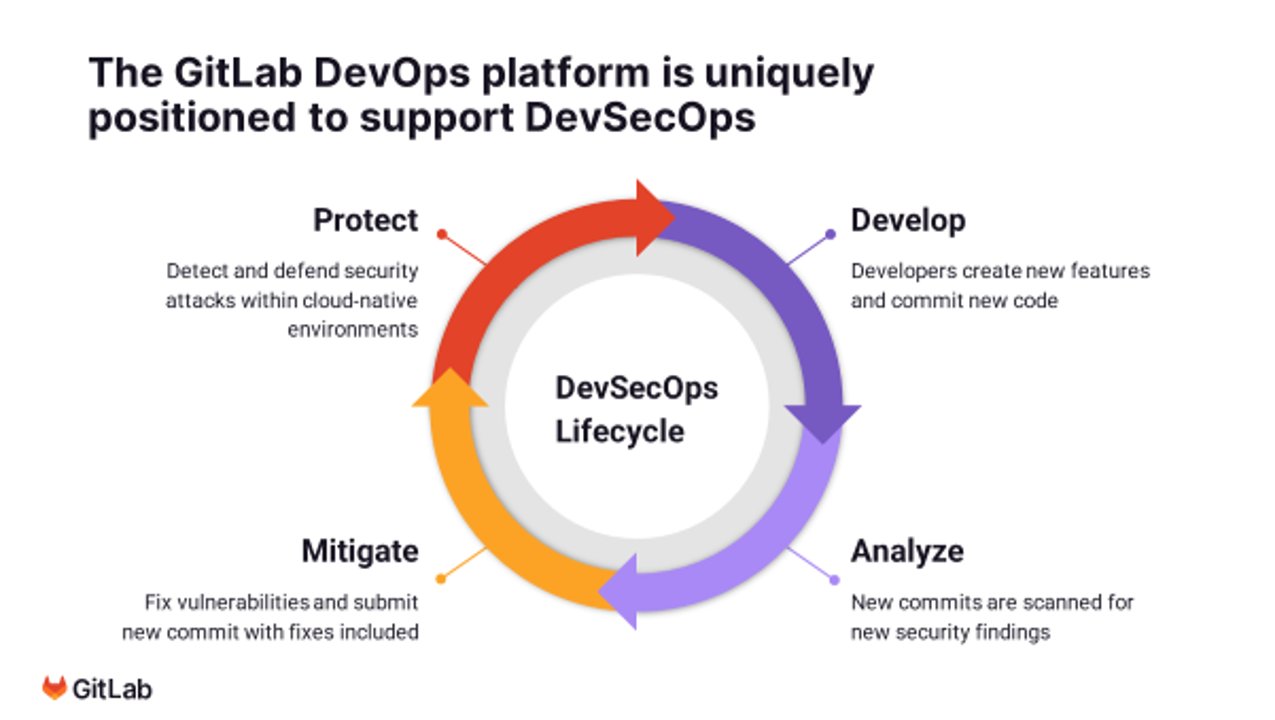
10 Benefits Of Using GitLab DevSecOps Platform
Firstly, let’s explore the core concepts of GitLab. At a high-level, the below GitLab features help streamline workflows, allowing teams to seamlessly collaborate and iterate on code.
1. GitLab DevSecOps Version Control
GitLab provides fantastic version control with Git repositories. That means, it’s in prime position to enable teams to manage and track changes in their codebase efficiently. This is a must for any modern software development team of more than one software developer.
2. GitLab Continuous Integration/Continuous Deployment (CI/CD)
Secondly, GitLab automates the CI/CD process, allowing teams to build, test, and deploy code changes seamlessly, without manual intervention. This reclamation of time is a huge efficiency benefit.
3. GitLab Issue Tracking
Next, if your team is disorganized, or doesn’t know what to work on next, this next feature is for you. GitLab DevSecOps platform includes a powerful issue tracking system helping teams manage and prioritize tasks, bugs, and feature requests effectively. Being able to visualize the work is an important Agile value allowing teams to communicate more effectively. Ultimately, this leads to better products being delivered faster.
4. GitLab DevSecOps Code Review
Did you know you can also facilitate collaborative code review with GitLab’s built-in tools, enhancing the quality and maintainability of the codebase? These collaborative reviews inside of Gitlab means both junior and senior developers can collaborate faster and elevate shared learning.

5. GitLab Repository Management
GitLab offers centralized git repositories, along with the repo management capability, making it easy to organize and access code repositories. That means teams can create branches to work on specific features or fixes independently. GitLab facilitates easy merging of branches, allowing developers to integrate their changes back into the main codebase. Also, GitLab offers a user-friendly web interface for repository management. Furthermore, developers can browse, view, and interact with repositories directly through their web browsers.
6. GitLab Wiki and Documentation
You can collaboratively create and maintain documentation using GitLab’s wiki feature, fostering knowledge sharing within the team. The system can be used for software documentation, feature requests by product management teams. Equally beneficial, it can be used for roadmaps to help organize future work.
7. GitLab Container Registry
GitLab also includes a container registry to store and manage Docker images. Essentially this streamlines container-based development.
8. GitLab DevSecOps Security Scanning
To secure the software supply chain properly, software development leaders must work hand-in-hand with the security team to be sure all elements are secure. So, by introducing security to all parts of your software development lifecycle, GitLab Ultimate helps you:
- Scale and secure your software supply chain.
- Stay ahead of threat vectors.
- Maintain your compliance posture.
A breach in security anywhere in your software supply chain can:
- Lead to significant costs.
- Irreparably damage your company’s reputation, depending on the nature and extent of the breach.
Driving a DevSecOps approach with GitLab Ultimate can help you understand where your software supply chain might have risks. Plus, it can help alleviate those risks faster and with lower costs versus o piecemeal development and security solutions. Rather, GitLab DevSecOps platform has enhanced code security with built-in security scanning tools, including static code analysis and vulnerability detection. Consequently these are hugely beneficial for regulated industries such as medical device, automotive, and aerospace.
9. Merge Request Workflow
You can also streamline collaboration with merge requests, allowing teams to propose, review, and merge code changes efficiently. This feature is available in all tiers of GitLab and allows users to create protected branch flows or a forking workflow.
10. GitLab DevSecOps Integration with Third-Party Tools
GitLab integrates seamlessly with various third-party tools, enabling a connected development ecosystem.
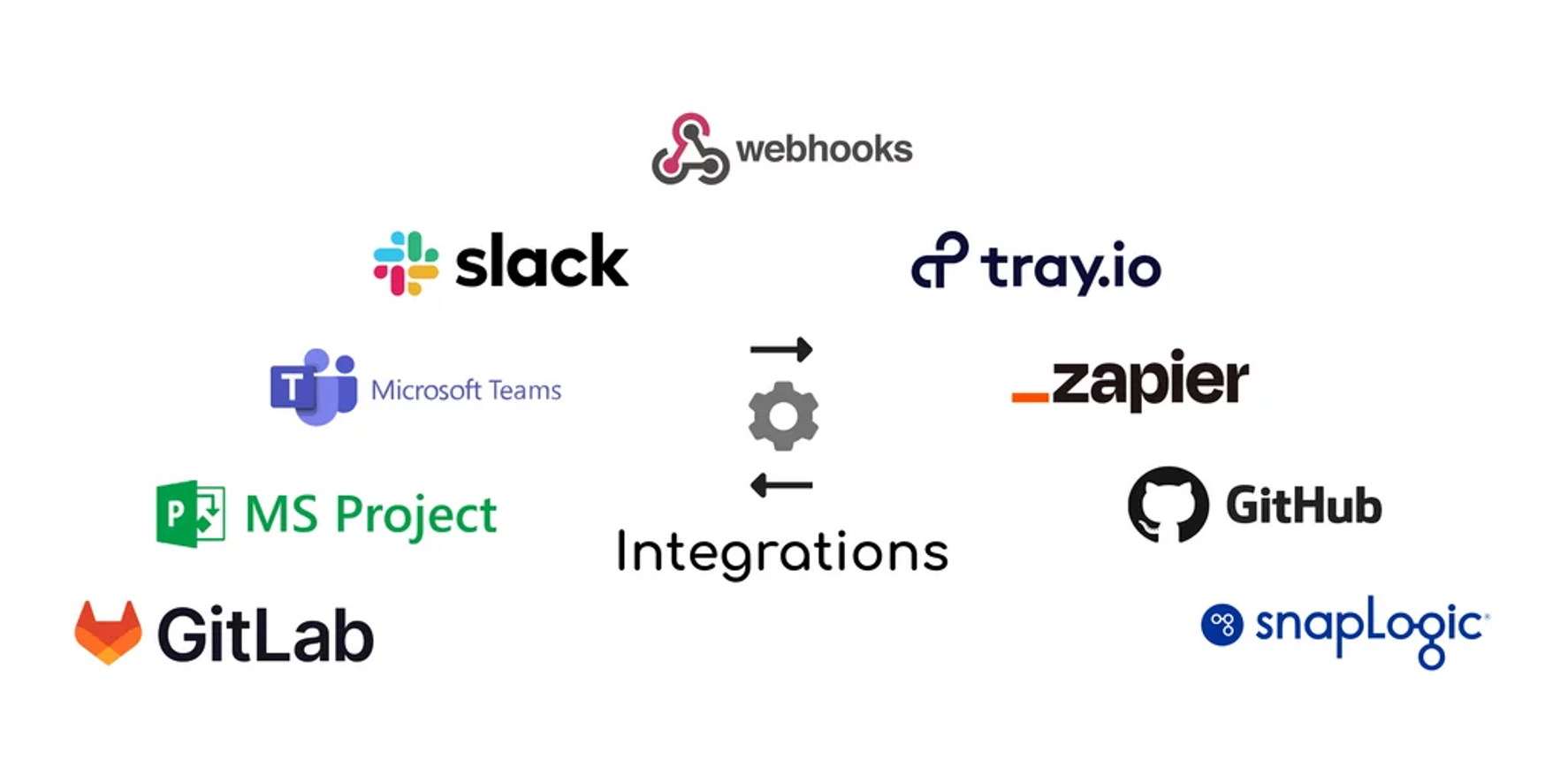
“We were looking for a platform that made sure we could build pipelines seamlessly, and also had security built-in from the onset. That meant the platform aligned with our tech principles – a fast feedback loop, continuous improvement, and delivering working software quickly, and safely to our customers.”
Specific Benefits of GitLab DevSecOps Platform CI/CD Pipelines
In almost every case I’ve ever seen, implementing Continuous Integration and Continuous Delivery (CI/CD) pipelines delivers huge value to software organizations. Having an integration pipeline and the ability to have code available for production provides value in multiple areas. For example, an increase in efficiency and the ability to go from concept to cash more quickly, along with integrating and automating many systems for less human error.
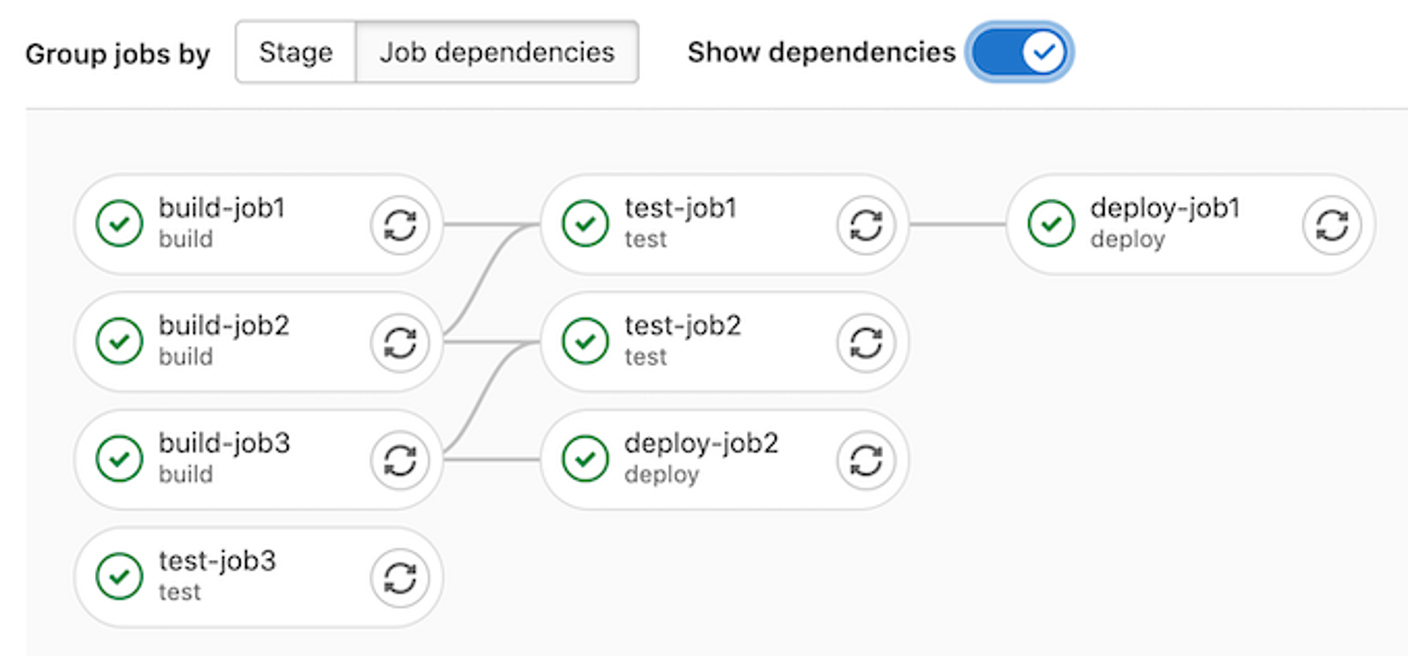
1. Increased Speed and Efficiency
Having a CI/CD pipeline automates the integration and testing of code changes, providing immediate feedback to developers. This accelerates the identification and resolution of issues early in the development process.
2. Automated Build and Deployment
CI/CD streamlines the build and deployment processes, reducing manual intervention. As someone who has seen many software delivery systems in different companies, I can tell you manual intervention is a huge problem. Therefore, being able to create systems that are automated, and can be tested in an automated fashion reduces risk. Automated testing ensures only reliable and validated code progresses through the pipeline. Ultimately this leads to faster and more frequent releases.
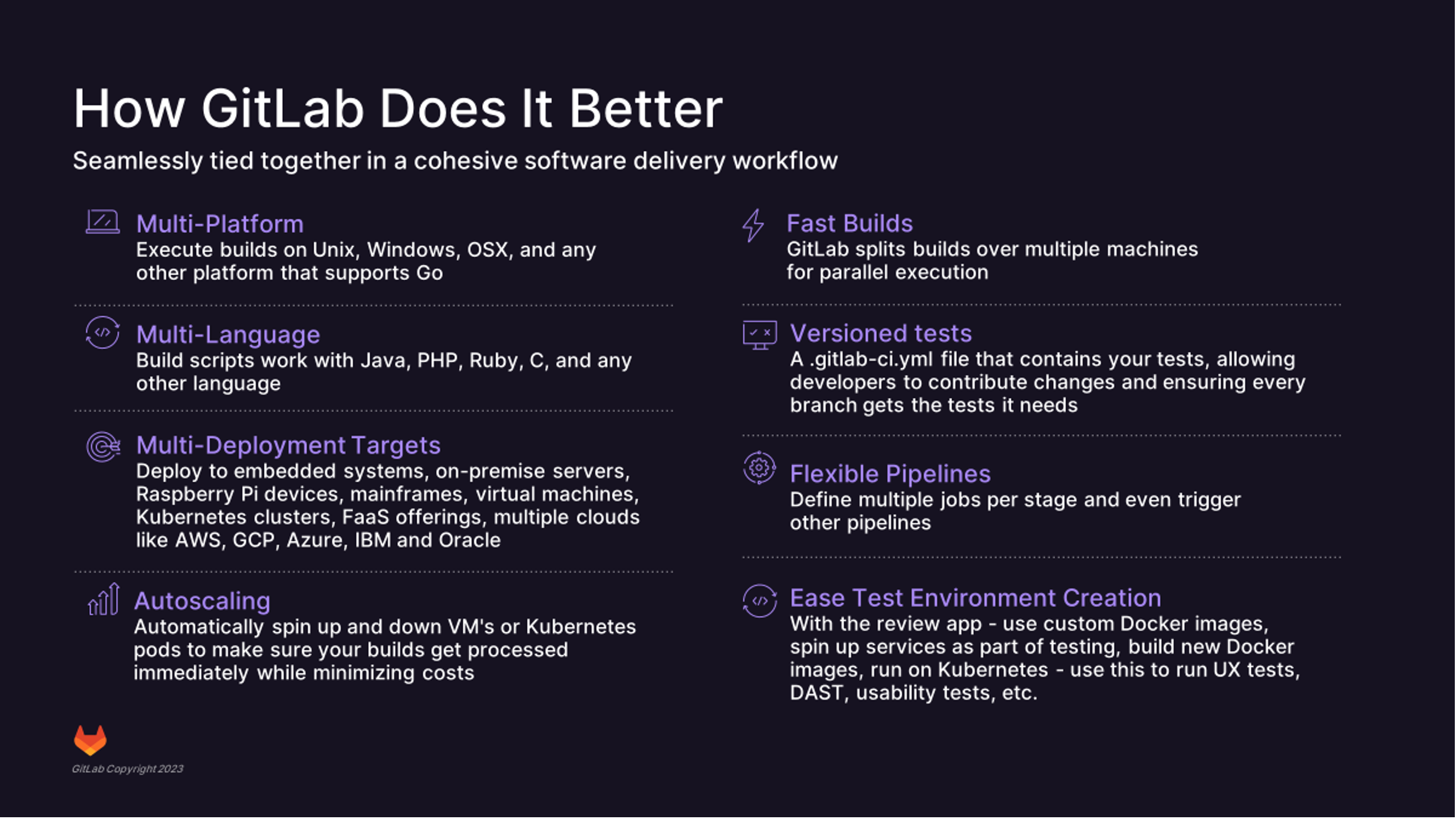
3. Enhanced Quality and Reliability
Having CI/CD ensures consistent environments for testing and deployment, minimizing discrepancies between development and production. This consistency contributes to more reliable and predictable outcomes.
Furthermore, automated testing, a crucial component of CI/CD, enables comprehensive testing of code changes. This includes unit tests, integration tests, and even user acceptance tests, leading to higher code quality and fewer defects in production.
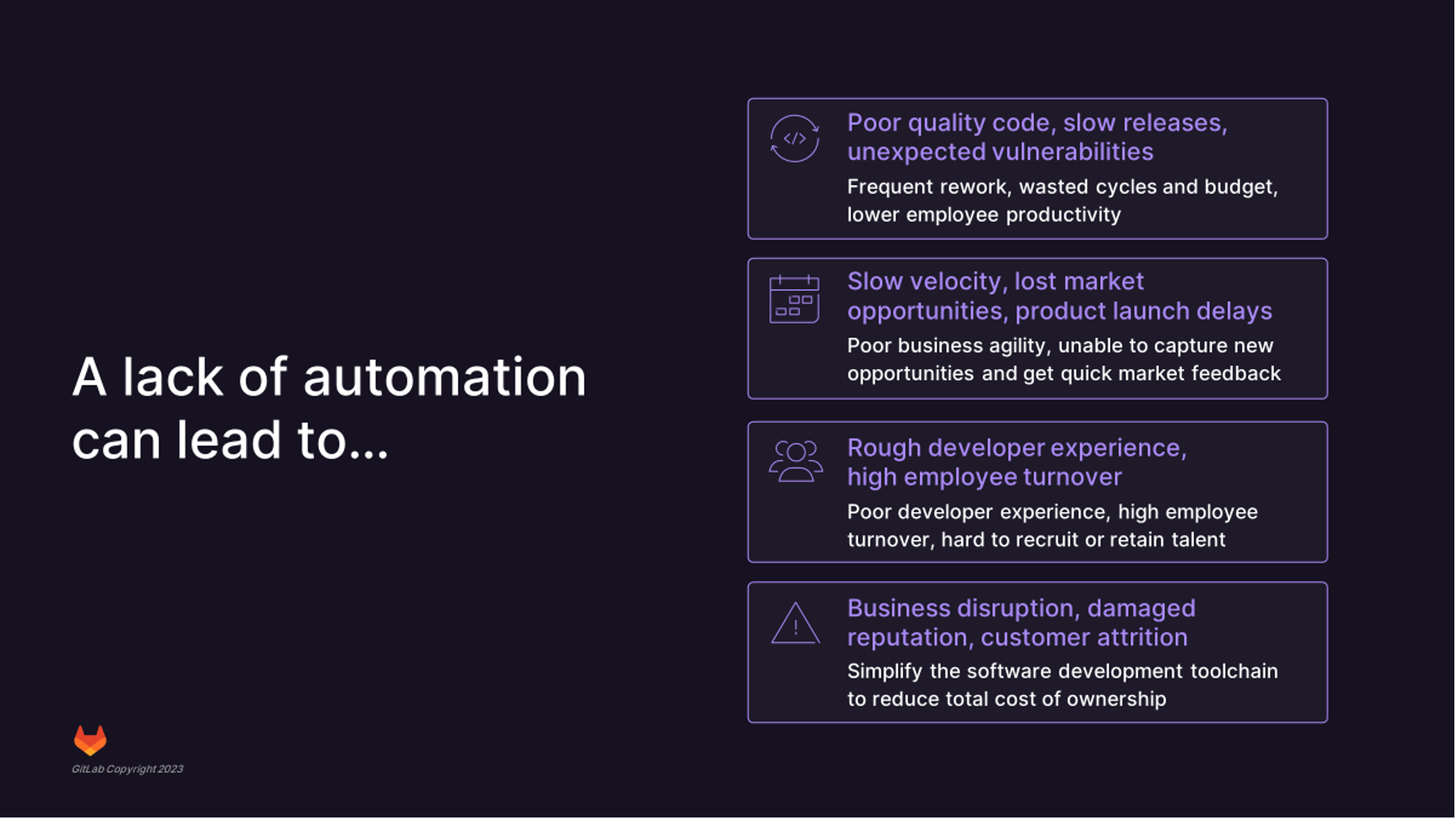
4. Streamlined Collaboration and Communication
CI/CD promotes collaboration among development, testing, and operations teams. Plus, it encourages a culture of shared responsibility, where teams work together to achieve common goals.
Another reason SPK has helped so many clients to utilize GitLab DevSecOps platform is it overcomes communication and collaboration blind spots for management and product team members. For example, implementing a CI/CD pipeline provides visibility into the entire software delivery process. That means it allows stakeholders to track changes, monitor progress, and identify potential bottlenecks before they occur. This type of collaboration fosters transparency and better communication across the organization. GitLab also fosters collaboration by providing a centralized platform for code management, collaboration, and automation.
GitLab DevSecOps Platform Customization
But, can GitLab DevSecOps be customized for specific development workflows? Yes, GitLab offers extensive customization options adapting to diverse development workflows and requirements. I feel this is a tremendous boost to productivity and efficiency because the tool doesn’t drive your process or workflow. Essentially, GitLab adapts to the way that your team works best. Therefore it enables you to find the benefits of the features of GitLab and making it more adaptable to your specific needs.
By automating testing processes and providing robust code review tools, GitLab DevSecOps enhances code quality and reliability.
What’s Your Next Steps with GitLab DevSecOps Platform?
GitLab DevOps accelerates software development processes. Its holistic approach to collaboration, automation, and efficiency puts it in prime position for modern development workflows. Additionally, GitLab is designed to cater to the needs of both small and large development teams. It offers scalability and flexibility. Furthermore, GitLab DevSecOps platform accelerates software releases through automated CI/CD pipelines, minimizing manual interventions and reducing release cycles.
To learn more about GitLab implementations, or upgrades to Ultimate to use DevSecOps security features, contact SPK and Associates today.







